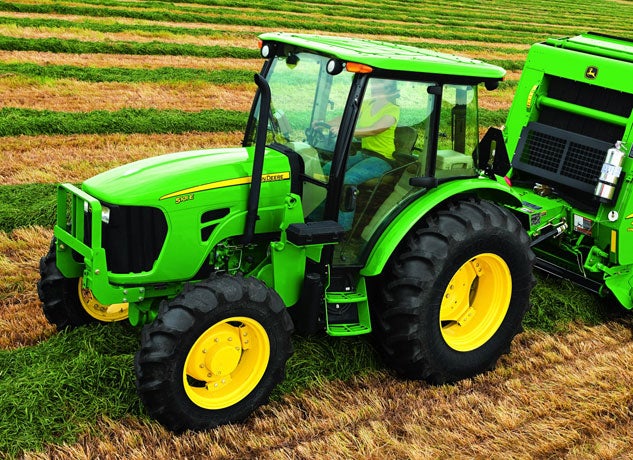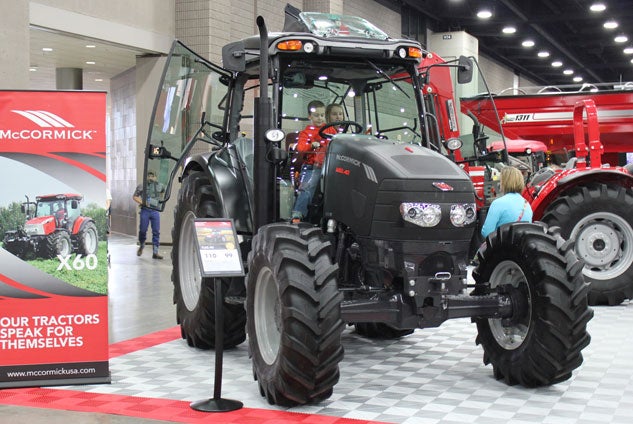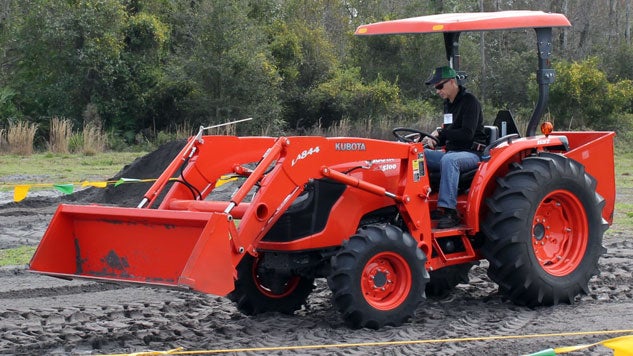.jpg)
Are you in the market for a tractor and like the idea of saving a few bucks on a pre-owned machine but wonder about what maintenance woes you might inherit? On the other hand, a new model might cost more, but there are those manufacturer incentives like zero down and extended no interest or low interest terms. Which is right for you? Read on and we’ll cover some of those things that will help you decide.
A tractor is a big ticket item and the up-front purchase price is a large part of the cost of ownership, though operating and maintenance costs are also important factors to consider. In the case of a new machine, you’ll be purchasing from a dealer who should have a thorough understanding of what the tractor is capable of and what it is not. The dealer should take time to learn your exact needs (current and future), inquire about your property (or if possible, visit it to visually understand the scope), and determine what your budget is. Based on that assessment, the dealer will make a recommendation or possibly several. Once you settle on a model or two, a test ride will be in order.

The test drive is the perfect time to pay attention to ergonomics and how comfortable you feel on the tractor. Remember, ostensibly you will own the machine for some time to come and you won’t want to be second guessing yourself down the road. As you narrow your search and begin to get serious, we like to see a test drive on your property. In some circumstances this might not be possible, but if it is, take advantage of a ride on your terrain.
Once you’ve decided on a tractor, negotiate, but remember the dealer has to make a profit and paying a little extra for one that will attend to your needs before, during, and after the sale is well worth it. When the paperwork is taken care of, the dealer usually needs time to attend to last minute details. This is an excellent opportunity to get familiar with the owner’s manual from cover to cover. When you take delivery, the dealer should go over every aspect of operating and maintaining the tractor and not leave until you are completely confident about safe operation. Maintain the tractor by the book, don’t abuse it, give it a coat of wax periodically, and you should be rewarded with long life and a satisfactory ownership experience.

Buy a used tractor from a private entity and not a dealer and that expertise will not be part of the equation. You’ll need to have done your homework and know what machine fits your needs and terrain. You’ll want to establish a baseline price using machinefinder.com or a similar source and you’ll also want to have your financing in order so that when you find the right tractor there are no delays that might cause a good deal to slip by.
Choosing a Work Vehicle: ATV vs. UTV
Maintenance history will be important. Find an owner with a detailed logbook and a well taken care of property – those are signs pointing the right direction. Inquire what implements have been run on the tractor as well as how many operators have had access to the machine. Look for wear on the pedals, tires etc. that might lead you to believe more hours are on the machine than indicated by the hour meter. Check to see if safeties have been disabled. That could be an indication of haphazard operation or even abuse. Fluids can tell you a lot about machine care. Are they topped off and clean? Are there dates on the filters indicating a change and do they correlate to what is written in the log book? It might even pay to have an experienced mechanic accompany you.
.jpg)
So, is a new or used machine the right choice for you? While we can’t make that decision for you, and with there being no clear cut right or wrong choice, it comes down to what you’re comfortable with. If you don’t mind turning a wrench and perhaps keeping up with a repair or two, then a used machine for a discount may appeal to your thrifty sense. Finances might also play a part in your decision process: if you have the ability to write a check a used machine purchase becomes easier than if financed. Conversely, if you need to finance the purchase, a new machine with zero down and no or low interest may be what seals the deal.
Diesels: Tractor Engines and the EPA
Features also might be a consideration. Is a drive-over auto-connect mid-mount mower deck a must-have on your list? If so, a used tractor might not have yet incorporated that newer technology. And Tier 4 emissions requirements are fast changing engine technology. The new compliant diesels are quieter and in many instances more fuel efficient. But that efficiency comes at a cost, both to the purchase price but also to the additives such as diesel exhaust fluid (DEF) and/or regenerative particulate filters (DPF) that at some point will need to be replaced. Tier 4 compliant engines also require sophisticated instruments to diagnose problems. One dealer told us of a $5000 tablet he had to purchase for diagnostics. If you intend to work on the tractor yourself, an older Tier 1–3 machine might be a more prudent choice.

New or used? The debate goes on. Do your homework, take into consideration these tips, and you’ll make the right decision.
NEW
• Pluses – Latest model. New manufacturer warranty. Easily financed. Extended or subsidized terms such as zero down and/or cash rebates.
• Minuses – Higher purchase price. Design changes might possibly not yet be completely field proven. Latest emissions control systems may have additional maintenance needs. Depreciation begins the moment the tractor is delivered.
USED
• Pluses – Lower purchase price. Already depreciated. Any manufacturer defects are likely to be worked out.
• Minuses – Maintenance history may be incomplete or fudged or missing. Harder to finance. Design may be dated when compared to the latest model.
 Your Privacy Choices
Your Privacy Choices